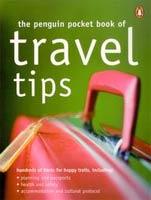 | « Back to article | Print this article |
Discerning book-lovers tend not to be fans of reading material that's presented in easy-consumption form: pocket books, for instance.
Partly this is just unabashed snobbery, but there's a practical side too -- if owning books (as opposed to borrowing them, which is what the hoi polloi do) is important to you, pocket books can leave you feeling dreadfully dissatisfied.
 As samplers or 'tasters' of an author's work, they are of questionable utility: who wants extracts from a cherished novel when one can buy the whole thing? Besides, if your shelves are tailored to accommodate books of a certain size, pocket books can be awkward things to fit in (Yes, these things do matter to us connoisseurs!)
As samplers or 'tasters' of an author's work, they are of questionable utility: who wants extracts from a cherished novel when one can buy the whole thing? Besides, if your shelves are tailored to accommodate books of a certain size, pocket books can be awkward things to fit in (Yes, these things do matter to us connoisseurs!)
But a serious reassessment of values is on the cards now. Penguin's new series of 70 pocket titles, published to mark seven decades of the company's existence, threatens to open our eyes to the merits of this format.
These mini-books (priced at 0.70 pounds each) are neatly produced and a delight to the eye -- they are compact (ranging between 55 and 60 pages each), with vibrant cover designs and the extracts are, for the most part, judiciously chosen.
The other thing about this collection is its staggering variety. Of course, given the list of authors and titles the company has in its catalogue, that isn't surprising. Nor is variety an unequivocally good thing: who precisely is India Knight, you might catch yourself wondering, and what is she doing rubbing pages with Nabokov, Woolf and Borges?
But then lists are bound to be flawed anyway, and personal reservations about some of the authors aside, there's a democracy at work here that should appeal to any open-minded reader.
When a certain ennui sets in; when you feel like sampling bits of writing (from across a range of genres and styles) rather than handing over the next few days of your reading life to a single book: at such times it's comforting to have a wide choice.
When you have these 70 mini-books spread out in front of you -- and because of their size and weight it's easy to spread them out, or even arrange and rearrange them in pretty patterns if you're so inclined -- you know that you could be poring over the Cyclops episode from Homer's The Odyssey one minute, savouring the work of hip young writers like Ali Smith and Dave Eggers the next, and then moving on perhaps to some non-fiction by Steven Pinker or Niall Ferguson.
It's a good feeling.
Some selectionsCaligula by Robert Graves
Graves' I, Claudius and Claudius The God, written as autobiographies of Tiberius Claudius, who became the unlikeliest of Roman emperors, are delightful historical novels. This extract from the former is a morbidly funny pen portrait of Claudius' nephew, the lunatic Caligula.
Cogs In The Great Machine by Eric Schlosser
Extracted from Fast Food Nation, Schlosser's powerful expose of the fast food industry, this is an account of what really goes on in the meatpacking business, including the immense physical dangers facing those who work in slaughterhouses.
Warning: read this only if you have a very strong stomach.
Happy Birthday, Jack Nicholson by Hunter S Thompson
Thompson is credited with founding 'gonzo journalism' but his writing style is inimitable, as you'll see when you enter his hallucinatory, drug-induced nightmare world. These extracts from his autobiography include a description of a 2 am visit to Jack Nicholson's house with a bleeding elk's heart as a birthday gift!
Scenes Of Academic Life by David Lodge
Lodge was one of the most acclaimed practitioners of what has come to be known as the 'campus novel' and here he chooses extracts (together with his own notes) from some of his books. As he points out in his introduction, many of these pieces reflect the vast changes in academic life in the past few years.
Martha And Hanwell by Zadie Smith
Smith, one of the brightest stars in Britain's literary firmament in the new millennium, claims in her introduction: 'I am not a natural short-story writer,' You'll find yourself strongly disagreeing with her by the time you've finished these pieces, which were originally published in Granta and The New Yorker.
Noise by Hari Kunzru
Early short fiction from Kunzru, this holds up even better at times than his novels; it's certainly more intense and concentrated. The theme that runs through all these stories is the breaking down of communication in the modern world. The title, incidentally, derives from the epilogue of his last book, Transmission.
Idiot Nation by Michael Moore
Political activist Moore is boorish, wildly unsubtle (both as a filmmaker and a writer), and defeats his own credibility by beating soft targets over the head with an iron club. But he's impossible to ignore, and some of the things he says -- regardless of how he says them -- are worth listening to. This is from his bestselling Stupid White Men.
Iron Potassium Nickel by Primo Levi
One of the Holocaust's most famous survivors, Levi's lifelong attempt to 'understand' what happened resulted in some of the bleakest literature on the concentration camps. These three stories, taken from The Periodic Table, describe his training as a chemist in wartime Turin even as a wave of anti-Semitism builds.